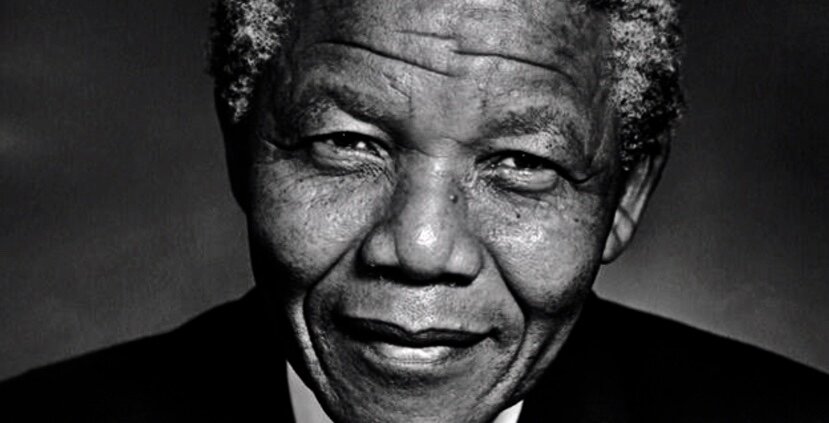
Purpose/Intro/Contents
Book purpose - what’s in it for you?
Over the years, I have regularly been asked to provide ‘insights’ and supposed ‘wisdom’ to others about the invaluable lessons that I have acquired throughout my career as a multinational CEO spanning continents, markets and industry segments.
In many ways, I cannot help but feel slightly embarrassed each time I’m asked for these stories. Whether this self-consciousness comes from my own humility or the ever-present imposter syndrome that we all seem to suffer from, I remain unsure.
One thing I do know is that I always seem to get positive feedback when I share these stories. From new recruits, eager graduates and hungry apprentices to seasoned executives and senior leaders, from dedicated factory folk to driven agency partners, anyone who cares to listen seems to get something out of it.
I know it sounds like a cliché, but ‘if I knew then what I know now’ I would have been so much better: more capable, more confident, potentially more successful and, most importantly, infinitely happier. So that’s why I’ve written this book.
Will you walk away a completely different person after reading these pages? I very much doubt it.
But let’s face it: life is damn hard at the best of times, particularly in the cut and thrust of the corporate world. Whether you’re just starting out or you’re a battle-hardened global leader, the demands of business are relentless.
So if you walk away from this book with one or two things that resonate strongly, go on to claim them as your own, and even stamp your leadership style on them, then hey, mission accomplished. If my insights help you to be just that much more self-assured and self-equipped for business success, then surely it’s a good thing. Enjoy.
Best, Hamish.
Book introduction - good, not great
Well, how does one start off a book when that particular someone has seldom passed chapter 3 of the thousand leadership books he’s started reading over the years? With a degree of difficulty, I’d say. Let’s go.
Before we start, let’s be clear on a few things.
Firstly, I reckon I am good, but not great. I have been successful in the corporate world, yet I believe success is relative. I have worked in many different roles, functions, companies and geographies, yet I am no NYSE Top 10 CEO. I have reasonable intelligence and have been told I am strategic, and I have successfully motivated teams across all levels of an organisation.
I also have an insatiable drive for results. Sometimes too much drive, but we’ll talk about that later. Above all, though, I love new. New ideas, new concepts, new ways of working. Anything that is different and anything that forces me out of my comfort zone. This works for some people, and it drives others crazy.
I cannot stand books (or people, for that matter) that talk endlessly about what we should do. Why we need to do this and why we must do that. Ones that list the reasons why we need to change, the problems we face, the struggles we encounter and the dilemmas in front of us — essentially, a hundred-plus reasons as to why we need to change — yet give no plan for action.
It drives me crazy. I am not against creating a compelling reason or vision for change, as that stuff is critically important as a catalyst for true change. I’m just against endless talk and bugger-all action.
How many times have you opened a management or leadership book that promises you the world, yet 100 pages into it you still haven’t got one clue as to what you should do next? Nothing tangible, no clear insight and no concrete action plans to make a true difference.
Add to this the number of times you’ve been in presentations or meetings where clever people state clever facts, analyse complex issues, share passionate pleas about the world of pain your organisation is in and the need to act with immediacy and utter conviction, only to fail to provide any way forward.
I do not need (nor will I accept) an extended business version of War and Peace just saying what we already know. I just want the relevant facts followed by a clear and logical recommendation on what we should do next. Then let’s just get on with it. Simple.
Now, back to the reason for the book itself. Unquestionably, I am better at business and a better leader today than I was when I was 20. Infinitely. (Some might say this was not a hard thing to achieve.)
I also know (like anyone who has worked on their self-awareness) that I have made numerous mistakes along the way. But mistakes give insight, and insight gives learning. This invaluable learning has shaped the success of not only myself, but of those around me and the brands and organisations of which I have been a part.
On the evening after I resigned from my position as Regional President of Mars Incorporated, I sat at the kitchen bench with a bottle of New Zealand pinot and proceeded to write down the key experiences, insights and learnings that I felt had shaped me over the last 30 years of my working life. Not technical or functional competencies, but true personal insights as a leader of others and as a leader of myself. By the time I had finished the bottle (and, rest assured, I am not a slow drinker) I had listed 67.
I can hear you sigh already, but you can relax: I won’t bore you to death with all of them. Rather, just a key selection that I believe will provide some benefit to others. I don’t expect to make my fortune from this, nor will I make any international bestseller list, but I do sincerely hope it makes a positive difference to those who read it. (And if it’s just my three kids who do so, well, that will be success in my mind.)
Oh yes, one other important thing before we jump in. Close friends have asked me on numerous occasions as to why I even attempted writing this book. It’s definitely a valid question and I reckon there are lessons in the answer for all of us.
The first is that I believe we should consistently push ourselves out of our comfort zone and I want this to resonate with all others. As I advise my partner, kids, colleagues and teams, just have a go and back yourself. You have nothing to lose. TS Elliot coined it beautifully when he wrote, ‘If you aren’t in over your head, how do you know how tall you are?’ Personally, I always want to know how tall I can be.
And the second reason is that I am a massive believer in unlocking potential in others. As I have discovered over many a year, it only takes one new insight of significance to make a massive difference to your career — indeed, to your life. Unleashing this potential in others is one very cool feeling.
Those are the reasons.
A disclaimer
Although I detest disclaimers (nowadays they appear at the base of virtually everything that you see, hear or read), here comes one: if you don’t agree with some of my concepts, principles or supposed insights, that’s okay.
As you will soon see, I view most approaches in life as neither right nor wrong, just different. The concepts explored here work for me, and on the majority of occasions that I have shared them with others, they work for them too. That said, if they aren’t for you, use them as provocation, stay curious and keep reading. If you disagree with all of them, simply look at chapter 8, ‘A bad boss is a great boss’, change the word ‘boss’ to ‘author’, and all will be forgiven.
You will also observe that I have contributing authors at the end of each chapter. Each is a respected expert within their field. I greatly value their opinions and believe their contributions, critique and reviews will be invaluable for you. I have provided them complete freedom to challenge, dispute, discard or build upon and support my positions. As you will discover, I love diverse perspectives, and these subject matter experts provide that.
As you progress through this book, you will also see that I have thrown in some practical strategic models. They are incredibly simple, which is why I like them and the reason that they work. People are often told in performance reviews, development discussions or general coaching sessions, ‘I would like you to show more strategic agility’. This innocent, oft-used line can also be destructive and make people doubt themselves.
I believe that anyone with a reasonable level of intelligence has the ability to be strategic. Everyone can just step back, reflect a little, look at the broadest possible view first and then work backwards towards a solution. And if that fails, you can rattle off a few strategic models every now and then to show how clever you really are. Do this and you’re halfway to becoming a strategic consultant.
There are literally thousands of these models out there, so please feel free to borrow, steal or beg from wherever takes your fancy. Claim them as your own, use them as your own, and, most importantly, lose the story that you are not strategic. It is unnecessary baggage that helps no-one.
Book contents - “It’s not always right to be right”
Chapter 1
Law, Logic Relationships
Chapter 5
It’s not always right to be right
Chapter 9
The three A’s (and one E)
Chapter 13
Bring on the grilling
Chapter 17
The authentic you
Chapter 2
Drains & Radiators
Chapter 6
Noticed, remembered, understood
Chapter 10
It only hurts when you write the cheque
Chapter 14
The hardest part of a decision
Chapter 18
Who is writing your agenda?
Chapter 3
The man who used to smile
Chapter 7
Ever heard of Harry Redknapp?
Chapter 11
Get a life
Chapter 15
Culture doesn’t matter
Close
If not you, who?
Chapter 4
Results are nice but awards matter
Chapter 8
Bad bosses are great bosses
Chapter 12
What would Margaret Thatcher say?
Chapter 16
Constant dissatisfaction


















